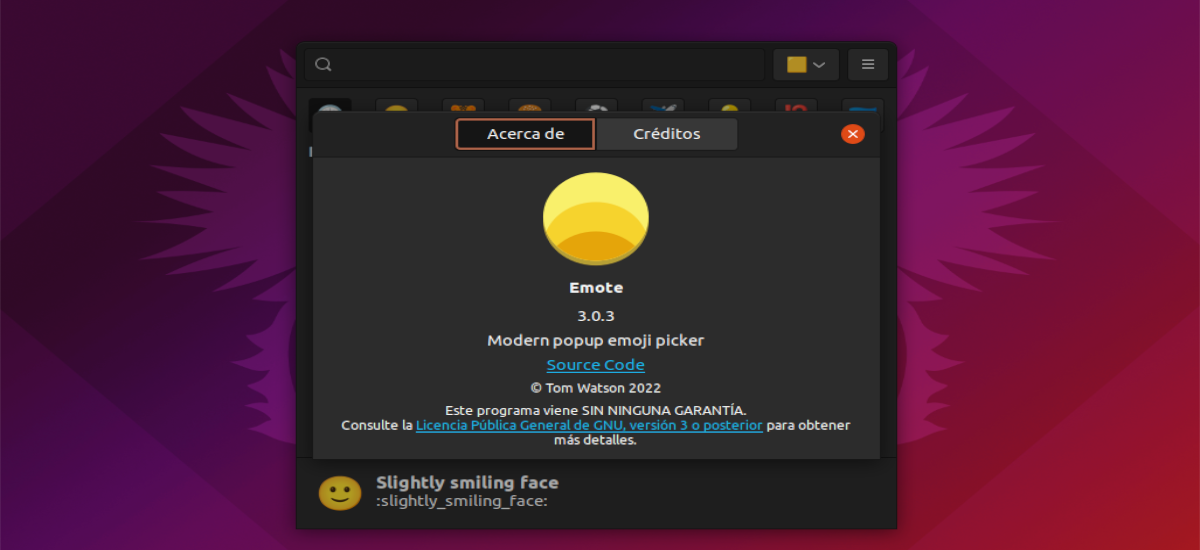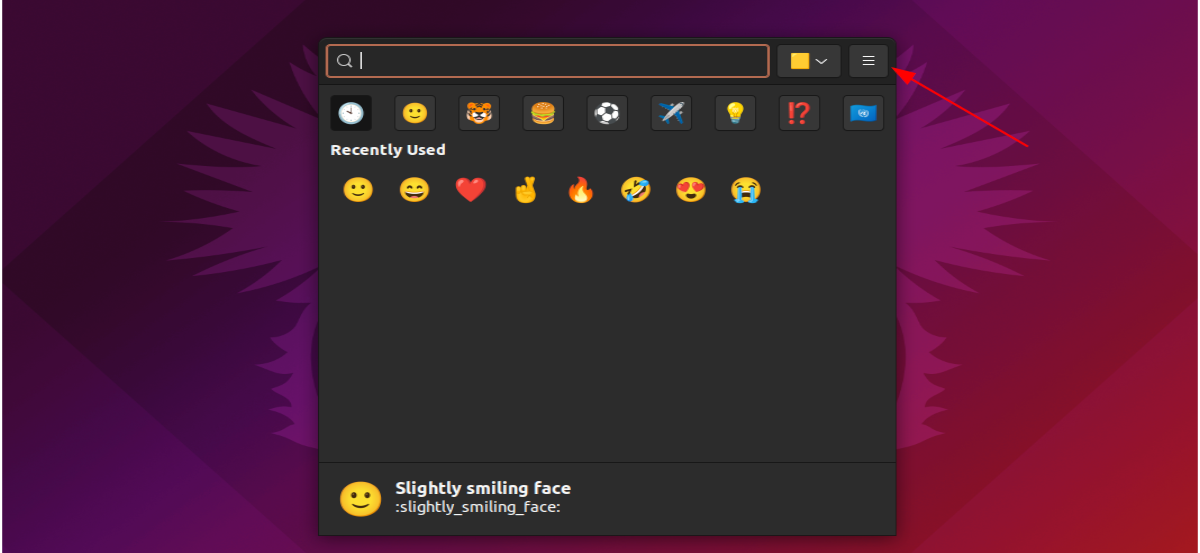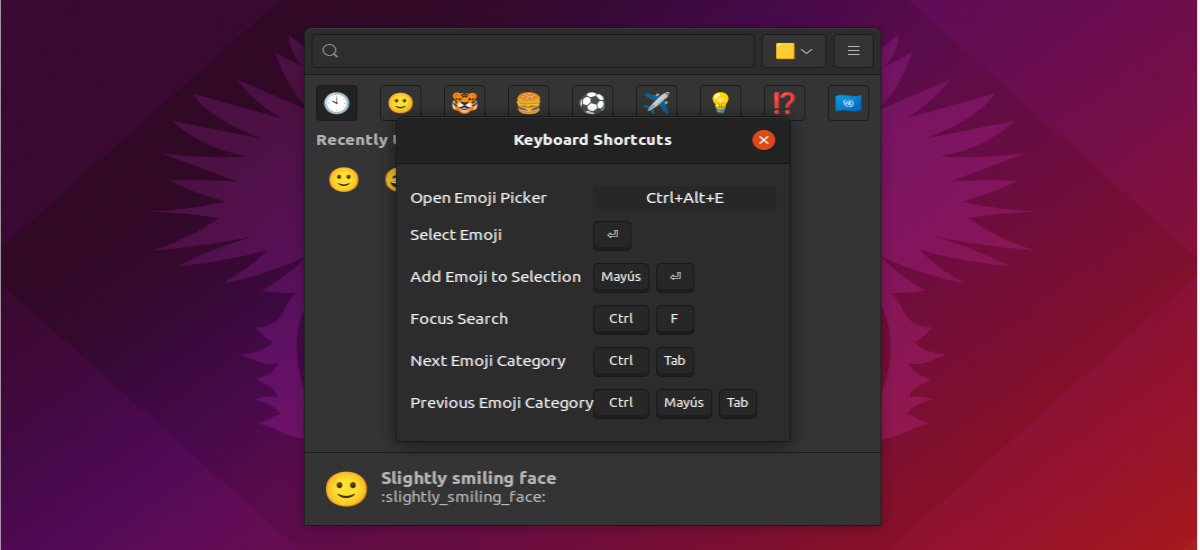
In the next article we are going to take a look at Emote. This program is a light emoji selector that is not annoying when working. The program is released under the GNU General Public License v3.0 and is written using Python.
Today communications have changed the way people interact with each other. Since communications fell a bit short when it came to express body language and verbal tone When text messages or emails were transmitted, different alternative ways of transmitting a little more have been developed. It could be considered that the most outstanding changes in this field have been the emoticons and emojis.
The emoji originated from emoticons, which in turn evolved from smiley faces. The smiley first appeared in the 1960s and is considered the first symbol of expression to be used in communications. Un emoji is a pictogram, ideogram or emoticon embedded in text and used in electronic messages and web pages. The primary function of emoji is to provide emotional cues that might not otherwise be added in written conversations.
Emote is advertised as a modern emoji picker, which it will run silently in the background, and it will start automatically when you log in. The emojis that this program is going to present to us are divided into different categories; Recently used, Smileys and people, Animals and nature, Food and drinks, Activities, Travel and places, Objects, Symbols and Flags.
Selecting an emoji will paste it into the window that is currently in focus. It is also copied to the clipboard of our system. In addition, there is the possibility of selecting and pasting several emojis at the same time.
With the window open, we can select the top three-line icon, and in this menu we will find the program preferences, which will allow us to load a theme. In addition, in this menu we will also find the option of keyboard shortcuts, which will give us the possibility of changing the keyboard shortcut that opens the emoji selector, as well as consulting the default shortcuts to add an emoji to the selection, search focus and previous/next emoji categories. We will also find a small user guide.
As indicated on their GitHub page, Emote in Wayland cannot automatically paste the emoji into other apps, and also requires manual registration of a global keyboard shortcut. This is due to intentional restrictions in the design of Wayland itself.
Installing Emote on Ubuntu
Emote is open source software, so we have unlimited access to the source code, which is posted on GitHub. The easiest way to install this program on our system is to use the snap package that can be found at Snapcraft. It is only necessary to open a terminal (Ctrl+Alt+T) and execute the command:
sudo snap install emote
After installation, you can start the program looking for its corresponding launcher in our system.
As we said above, Emote runs in the background and starts automatically when we log in. To see the emoji selector it is only necessary to use the configurable keyboard shortcut Ctrl+Alt+E and select one or more emojis to be automatically pasted into the current app.
Keyboard shortcuts
The keyboard will allow us to work very comfortably with this program. It will give us the opportunity to use a series of shortcuts, although only one of them can be configured:
- Open emoji picker → Ctrl+Alt+E (configurable)
- Select the emoji → Enter
- Add emoji to selection → Shift+Enter
- Focus search → Ctrl+F
- Next category of emojis → Ctrl+Tab
- Previous emoji category → Ctrl+Shift+Tab
uninstall
For remove this program from our system, it will only be necessary to open a terminal (Ctrl+Alt+T) and use the command in it:
sudo snap remove emote
Emote is a simple, yet highly effective emoji picker. It can get more information about this program from project's GitHub repository.




